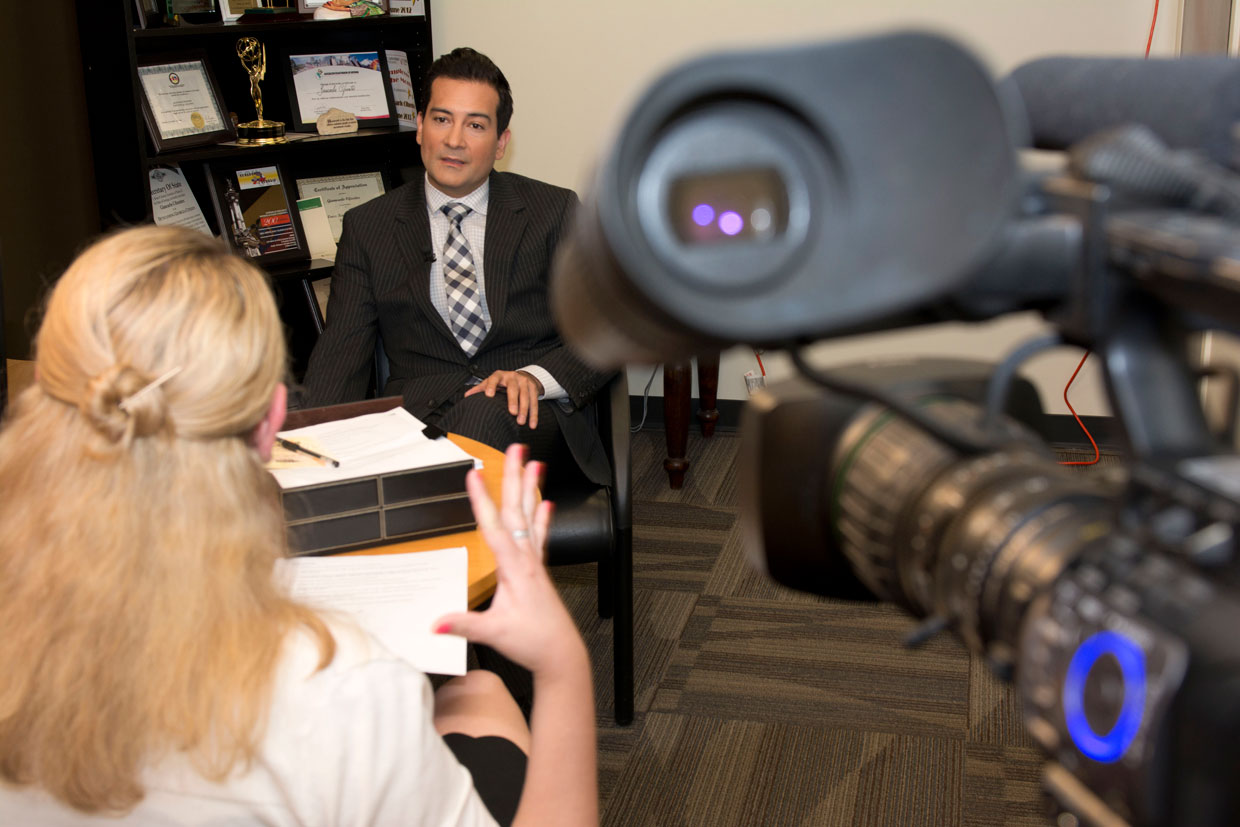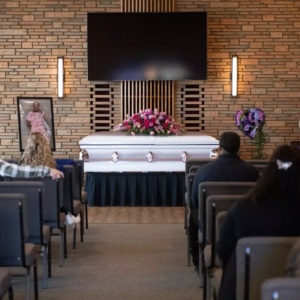
5 protips for applying for a Rosalynn Carter Fellowship for Mental Health Journalism
The first time I sat down to dig into applications for The Rosalynn Carter Fellowships for Mental Health Journalism, I was barely six weeks into my new role overseeing the program and up to my eyeballs transitioning from news to non-profit.
It was vastly different from the time I spent in newsrooms, first as a staff writer and later running social media, dabbling in platform analytics and then leading digital content strategy.
The program started back in 1996 when The Carter Center began awarding fellowships to journalists to report on mental health and reduce stigma through storytelling. Since then, it’s grown to 220 journalists.
Over the past year, it has been incredibly fulfilling to support such a smart and passionate group of journalists committed to reporting on mental health—and trying to be mindful of their own.
One of my favorite things thus far has been watching the new cohort connect over their passion for mental health reporting and know they’re not alone in their specialized interest.
I consider myself lucky to oversee the fellowship selection process, brainstorm journalists’ training sessions, help line up presenters and secure funding, and to get to know fellows, old and new.
Before we reviewed applications last year, we’d worked on improving the process, like updating fellowship criteria, involving more journalists and journalists of color in reviews and being more intentional in recruitment.
Over several weeks, we moved through rounds of evaluations, debating topics and candidates. By the end, we had a solid list of stellar finalists and notes on what we wanted to do better.
Also in my notes were observations on strong applications and what might have improved others. Here are those tips:
1. Do a bit of research.
So you’re interested in applying, but have some questions. Can you apply if you’ve never reported on mental health? Who’s considered a journalist? What should your topic be?
Take some time to read up about the fellowship. We expanded our Frequently Asked Questions to make the process even clearer and give you a sense of the application process and other useful information.
It might also be good to know who’s gotten fellowships before. What’s their professional background? What was their fellowship topic? How did their project or stories turn out? You can start by checking out the current class of fellows, past fellows and their projects and following @CarterFellows on Twitter for fellows’ recent work.
[Related: What being a Carter Fellow Means to Me, by Fellow Fiza Pirani (’18-’19)]
2. Don’t procrastinate.
As journalists, it’s tempting to put things off until you’re close to deadline. But this fellowship is highly competitive, so you’ll want to put some thought into it.
Pay attention to the deadlines for application submission and for your letters of recommendation and letter of support. Start thinking of who you’ll ask to be your recommenders. And don’t forget, you can work on your application, save it and come back to it at any time before the deadline.
Take all the time you need to make it the best application possible.
Here’s a checklist as you get started on your @CarterCenter mental health journalism fellowship application:
1️⃣ Project title & summary
2️⃣ Resume
3️⃣ Informal essay
4️⃣ Work samples
5️⃣ Recommendation letters
6️⃣ Letter of supportDetails: https://t.co/pizBn4J8ra pic.twitter.com/4lqXrX3HUN
— Carter Fellows (@CarterFellows) February 6, 2020
[Related: So you want to be a Carter Fellow? What I wish I knew before applying.]
3. Go all in.
Seriously, put in your best effort. I know, I know. It seems like a no-brainer, but it holds true!
Applications are ranked based on a number of factors, including topic timeliness and potential impact, the quality of your proposal and work samples, and the strength of your references. A lower score in any of these affects your overall application.
It’s so hard to see a strong applicant with a recommendation that never came in or great work samples alongside a proposal riddled with spelling errors. Every bit counts.
- Review application questions and prepare answers once you’ve created an account to start your application.
- Check out The Carter Center’s Journalism Resource Guide on Behavioral Health to get ahead of the game. If you’re selected as a fellow, you’ll be trained in effective mental health reporting, but the guide will help you avoid using stigmatizing language in your application.
- Respond thoughtfully to every question, reread your responses for clarity and double-check grammar and spelling before you hit submit.
[Related: Mental health reporting leads to state legislation]
4. Submit the work you’re most proud of.
One of the great things about the mental health journalism fellowship is that you don’t need previous experience reporting in mental health, just a strong interest in it and a commitment to continue. We’ll help you build your mental health chops!
You might not have work samples of mental health coverage and that’s OK. Think about the stories or coverage you’ve done that you’re proud of or even ones that may be connected to related issues.
The quality of your work samples is part of how your application is weighted. Make them count.
5. Get your recommenders on board early.
Reach out ASAP to your recommenders and the person who’ll write your letter of support to secure their backing.
Make sure you give them all the information they need to write a stellar letter, that they know the process for submission and the deadline to submit so they can do so on time.
When you complete your application, they get an email letting them know they can submit their recommendation or letter of support. Still, give them a heads up when you’ve applied and ensure they get the email in their inbox or spam folder. You can also resend recommendation requests through the application portal.
We know your aunty loves you, but you’ll want to use professional contacts for this one and not family or friends.
[Related: How many recommendations do I need? What’s in a letter of support? We have details]
Are you ready to be a Carter Center mental health journalism fellow? Or perhaps you can encourage someone you know to apply. Good luck! And thanks for letting me share these tips with you.
Here's what @CarterCenter Fellow @fizapirani ('18-'19) wished she knew before applying for a @CarterFellows mental health journalism fellowship: https://t.co/Wv5w7df2tP via @4nbodies
— Carter Fellows (@CarterFellows) February 12, 2020
BONUS! 6. Ask a fellow
Ask a current or past fellow to review your responses before you submit. Not sure where to turn? We hosted a Twitter chat with two Carter Fellows and a Journalism Advisory Board member. Tap on the tweet below and then on each question to see their tips for applying. You can also review them here.
Hi, it’s time for #CarterFellowsChat!
Tonight, fellows @aneripattani with @SpotlightPA and @CTHerman with @willpubmedia + @CarterFellows adviser @HankKlibanoff will be answering questions about applying for our mental health journalism fellowships.
— Carter Fellows (@CarterFellows) March 5, 2020
Kari Cobham is the senior associate director of the Rosalynn Carter Fellowships for Mental Health Journalism at the Carter Center. Follow her @KariWrites and fellows’ mental health reporting @CarterFellows.



